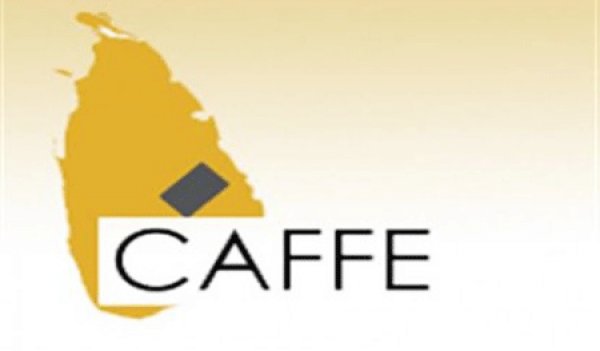Issuing a statement on the UNHRC session, the two institutions say,
In a decisive moment in Sri Lanka’s history the Sri Lankan Government is to co-sponsor a consensual UNHRC resolution supporting the reconciliatory measures to be taken by the Sri Lankan government to establish a Commission for Truth, Justice, Reconciliation and Non Recurrence, an Office of Missing Persons, an Office of Reparations and most importantly a National Integration and Reconciliation Ministry under the Sri Lankan President.
This will include the establishment of a Sri Lankan Judicial Mechanism with a Special Counsel to investigate allegations of violations and abuses of human rights and international humanitarian law.
Commonwealth and other foreign judges, defense lawyers and authorized prosecutors and investigators will participate in a ‘credible justice process’.
It is essential that the Government of Sri Lanka is supported in its efforts to promote reconciliation in Sri Lanka because of the real political situation faced by it in the Southern political landscape.
With the release of the report, former President Rajapaksa already released a hardline response, political elements such as Wimal Weerawansa have started an all island campaign to rouse communal sentiments and Udaya Gammanpilla has suggested introducing a blanket immunity law for all Sri Lankan government elements involved during the war.
All these elements do not want any kind of investigation on Sri Lanka.
The TNA has come a long way from their original demand for an international investigation however, it is also worrying in relation to how the Sri Lankan state will deliver a credible alternative to the Northern people.
The people of the North trusted the Prime Minister and President to deliver justice to them.
We must understand the position of the Sri Lankan government.
The UNP is still not popular in the South. They must face local council elections in March 2016 under a new LC electoral system which favors the UPFA. This is why the UNP’s Working Committee approved a proposal to put forward the position to hold LC elections under a preferential system. This is why the UNP cannot go for a hybrid system. Disillusionment with the new position in contradiction to the Foreign Minister’s position must be reconciled with the fact, that the Sri Lankan government cannot run away from the high expectations placed upon them, in their commitment for the true spirit of reconciliation. They cannot change tracks now.
We only have a small window of opportunity. The USA and UK must deliver a consensus resolution and India is taking a neutral position. And Sri Lanka cannot afford to antagonize the EU for economic reasons. The Sri Lankan government must overhaul Sri Lanka’s judicial system. The logic behind introducing a hybrid court is because Sri Lanka’s judicial system has lost its credibility to prosecute serious crimes. The Sri Lankan government must be tactful and utilize the support of civil society to give a strong message to the Southern polity that we must ensure justice for all with international standards. This must be done for victims across all ethnicities. If we are unable to do this now, the entire reformist agenda of civil society can collapse. Without the Justice element, constitutional reforms for the electoral system, democracy, good governance and devolution of power will be almost impossible.
This will be a long and perilous journey for everyone including the civil society. We must understand the real political challenges before us. Even before we any substantial movement in this regard, we envisage that there will be at least 5 or more initial challenges in relation to the level of participation for ‘foreign’ legal officers in a Sri Lankan process:
1. Sri Lanka has a Criminal Justice Department within the Attorney General Departments Office. With the introduction of the hybrid court, this institution will become compromised.
2. It is not clear whether this will be a commission with quasi-judicial powers or a fully powered legal entity. This will determine whether it will need a 2/3rds majority in parliament and a referendum. However, the TNA’s position is that legally this can be enacted with a simple majority. But this is arguable.
3. Under Sri Lankan laws no lawyer can practice in Sri Lanka without giving a oath to the Supreme Court of Sri Lanka under the Judicature Act. This act will have to be amended. It could be done through a simple majority, but once again, this is arguable.
4. Violations will have to be prosecuted under Sri Lankan law. Under Sri Lankan law human rights violations do not fall under criminal prosecutions. Sri Lankan laws will have to amended through the parliament, once again. This will be the same for crimes against humanity and war crimes.
5. If the violators represented the Sri Lankan government or the Sri Lankan military, they will have to be prosecuted by the Sri Lankan State, but the question will arise as to who will play the role of a Defense lawyer, for former or present military personnel. This is a serious conflict of interest.






